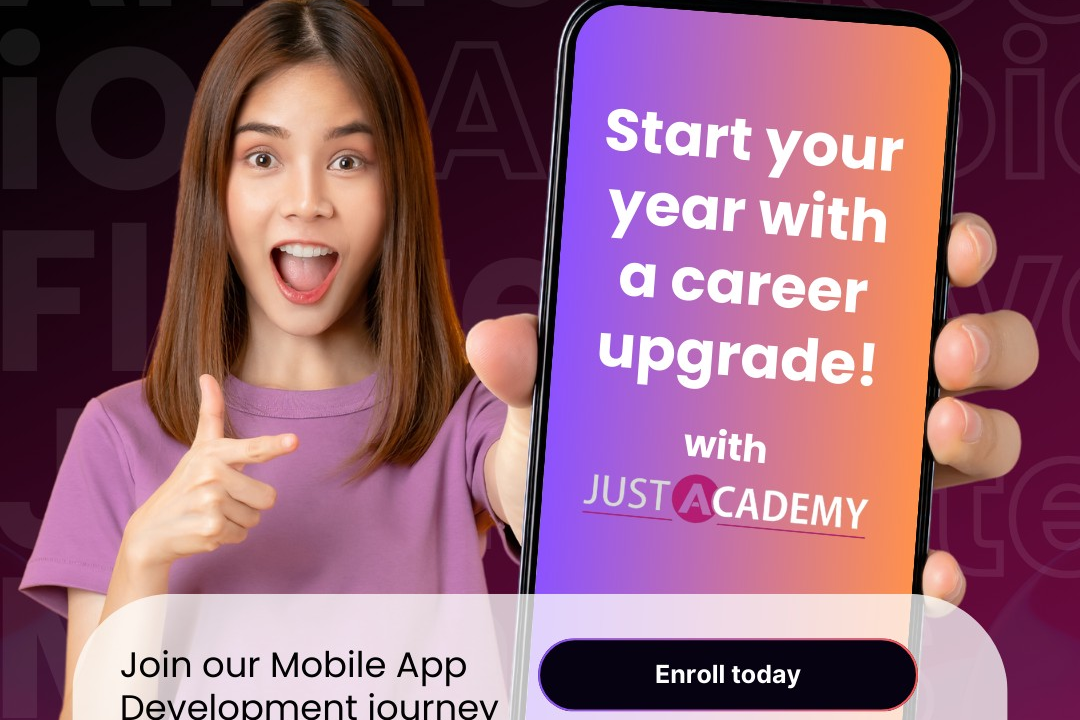Flutter For Corporate Training
Enhancing Corporate Training through Flutter
Flutter For Corporate Training
Flutter is an open-source UI software development toolkit created by Google, designed for building natively compiled applications for mobile, web, and desktop from a single codebase. For corporate training, Flutter offers a modern and efficient way to develop applications, enabling enterprises to streamline their development processes and reduce time-to-market while maintaining high performance and aesthetics. Training sessions can cover key concepts such as widget-based architecture, state management, and responsive design, equipping teams with the skills to create cross-platform applications that enhance user experience. With a growing community and extensive documentation, Flutter represents a valuable investment for companies looking to leverage modern app development technologies.
To Download Our Brochure: https://www.justacademy.co/download-brochure-for-free
Message us for more information: +91 9987184296
1 - Introduction to Flutter: Provide an overview of Flutter, explaining its purpose as an open source UI software development toolkit created by Google for building natively compiled applications for mobile, web, and desktop from a single codebase.
2) Dart Programming Language: Introduce Dart, the language used in Flutter, covering its syntax, features, and advantages that complement Flutter’s capabilities.
3) Flutter Architecture: Explain the architecture of Flutter, including the Flutter Engine, Foundation Library, and Widgets, to give insights into how it processes and renders applications.
4) Widgets and UI Components: Discuss the core concept of widgets in Flutter, including stateless and stateful widgets, and demonstrate how they are used to build interactive UIs.
5) Flutter Development Environment: Guide participants through setting up a Flutter development environment, including tools like Android Studio, Visual Studio Code, and the Flutter SDK.
6) State Management Solutions: Cover various state management options in Flutter, such as Provider, Riverpod, Bloc, and GetX, explaining how they help manage app state effectively.
7) Responsive design: Teach how to create responsive layouts in Flutter that work on various screen sizes and orientations, ensuring a consistent user experience across devices.
8) Networking and API Integration: Explain the process of interacting with REST APIs and handling network requests using packages such as http, Dio, or Chopper for data fetching in Flutter apps.
9) Database and Local Storage: Discuss local data storage options in Flutter, including SQLite and shared preferences, showcasing how to implement persistent storage solutions.
10) Animations and Custom UI: Introduce Flutter’s animation capabilities, including transitions and custom animations, to enhance the user experience and engagement.
11) Testing and Debugging: Cover testing frameworks available in Flutter, such as unit tests, widget tests, and integration tests, highlighting best practices for maintaining high code quality.
12) Deployment Process: Teach how to prepare and deploy Flutter applications on both Android and iOS platforms, covering necessary steps for app distribution.
13) Integrating Third Party Packages: Discuss how to effectively use the rich ecosystem of third party packages available on pub.dev to extend functionality in Flutter applications.
14) Performance Optimization: Teach optimization techniques to enhance the performance of Flutter apps, including rendering techniques and best practices for minimizing app size and improving speed.
15) Collaboration and Version Control: Explain the importance of collaboration in software development and introduce version control systems like Git, emphasizing teamwork in Flutter projects.
16) Real world Project Implementation: Engage trainees with practical hands on sessions by guiding them through building a complete Flutter application from scratch to reinforce learning.
17) Cross Platform Benefits: Highlight the advantages of cross platform development with Flutter, including reduced development time and cost, and easier maintenance over traditional native development.
18) Community and Learning Resources: Encourage ongoing learning by introducing participants to the Flutter community, official documentation, forums, and channels for continued support after training.
Tailoring the training program with these points can provide a comprehensive learning experience for students, equipping them with the skills and knowledge necessary to excel in Flutter development.
Browse our course links : https://www.justacademy.co/all-courses
To Join our FREE DEMO Session: Click Here
Contact Us for more info:
Full-Stack Android Development
Flutter Learning Experience
Android App Development Certification Course in Kanpur
APIs
PMP certificate in india











